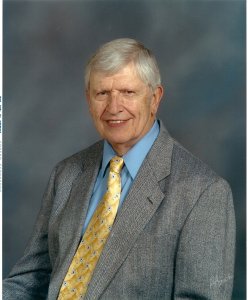
Lincoln Landis
.
Why didn’t the North Atlantic Treaty Organization expire with the collapse of communism that ended the Cold War? Also, why was NATO resuscitated in the 1990s, shifting its focus to Eastern Europe? Finally, how does NATO relate to non-communist Russia?
The answers lie in Kremlinology’s failure to understand Russia’s grassroots revolution of August 1991. Unwisely expecting economic collapse to cause the Soviet Union’s demise, many academicians may have ultimately looked forward to "instant democracy—Western style.”*
Consider the frank acknowledgement by Librarian of Congress and Soviet affairs expert James Billington regarding the U.S.S.R.’s downfall while President Gorbachev was on vacation:
"We are living in the midst of a great historical drama that we did not expect, do not understand, and cannot even name” (in 1991) and "implosion of the Soviet system was totally unanticipated, and we still don’t understand it” (in 2011).
Congress has thus failed to interpret the so-called "collapse" as a grassroots revolution. Yet, my liaison activities during the Cold War period indicate that communism in Russia began to collapse the moment Premier Joseph Stalin brought the U.S.S.R. into the United Nations in 1945. This fateful act of diplomacy, I believe, opened Soviet communism to the scrutiny of my one-on-one liaison activities during key periods – the 1948 Berlin Airlift crisis, the 1961 Berlin Wall crisis, and the détente period of the 1970s.
During personal exchanges, I observed pro-American and anti-regime attitudes. Soviet citizens frequently displayed shifts from a veneer of hostility to a congenial manner, suggesting the presence of "a split personality.” In making comparisons, I tried to imagine whether a potential existed for Russian citizens to adjust to everyday life in a Western-style democracy. It seemed likely for them to be nearly impossible because of seven decades of totalitarian rule that reflected habitual fear, lack of incentive, loss of human dignity, and mistrust of one another.
Nevertheless, in August 1991, when unarmed and leaderless citizens found Party leadership to be in disarray, ordinary Russians assembled joyfully in the streets of Moscow, proceeding to find the first opportunity to make their case for freedom. They carried out, I suggest, a popular, spontaneous and peaceable, pro-American, anti-regime revolution, persuading Federation President (and Party maverick) Boris Yeltsin to proclaim by fiat the end of communism in Russia.
Meanwhile, NATO stalwarts, unaware that ordinary Russians had dealt a lethal blow to communism, simply kept the old alliance intact with a new focus: Western Europe stretching eastward. This resuscitated Alliance, however, may promise to be no match for Russians who have wisely learned that "deliberate democracy—Eastern style” is their best, reasonable goal.
*Excerpts are based upon the author’s recent paperback: How Ordinary Russians Clobbered Communism: An Insider’s View. (Heritage Books, August 2014)



.jpg/250px-ElbeDay1945_(NARA_ww2-121).jpg)





